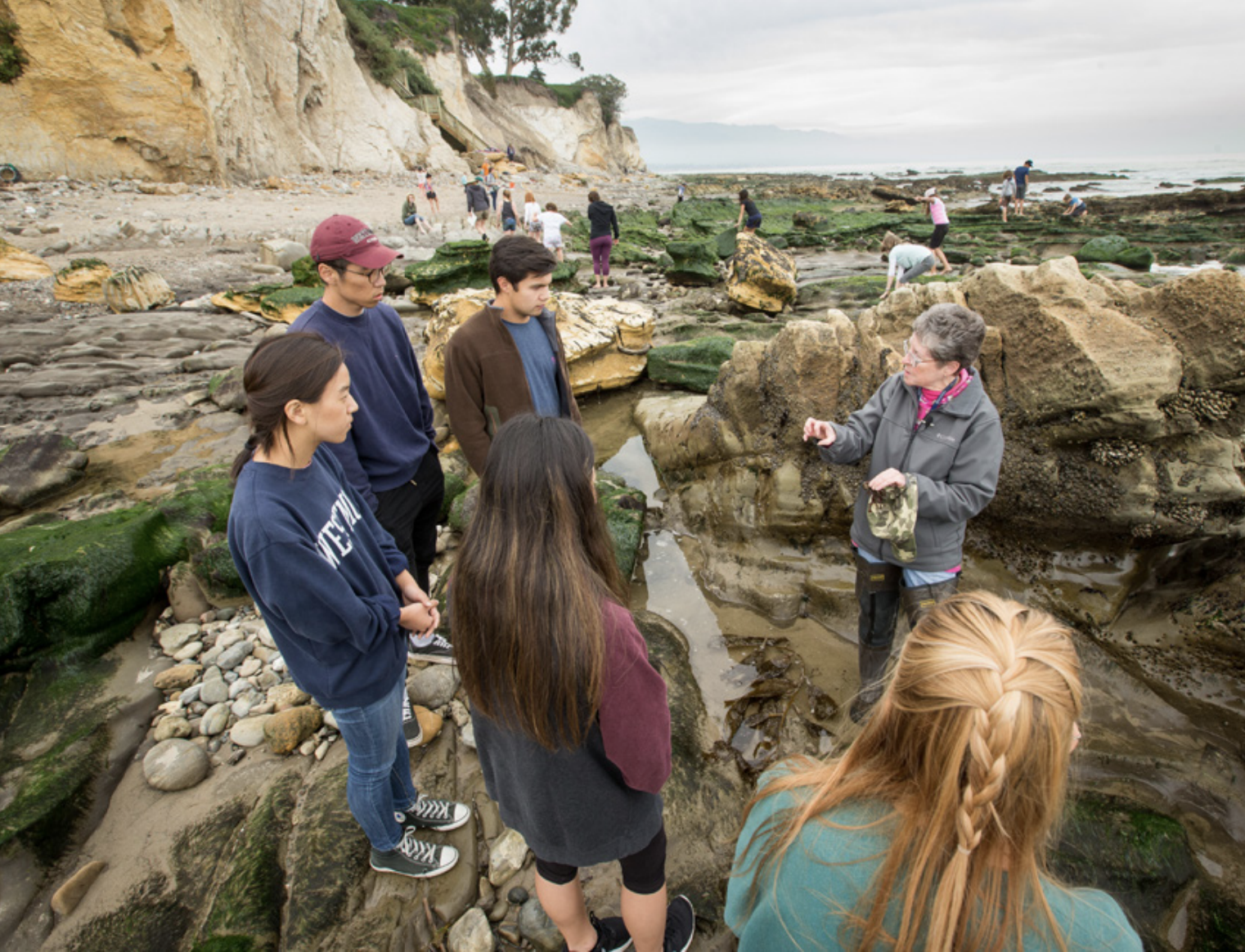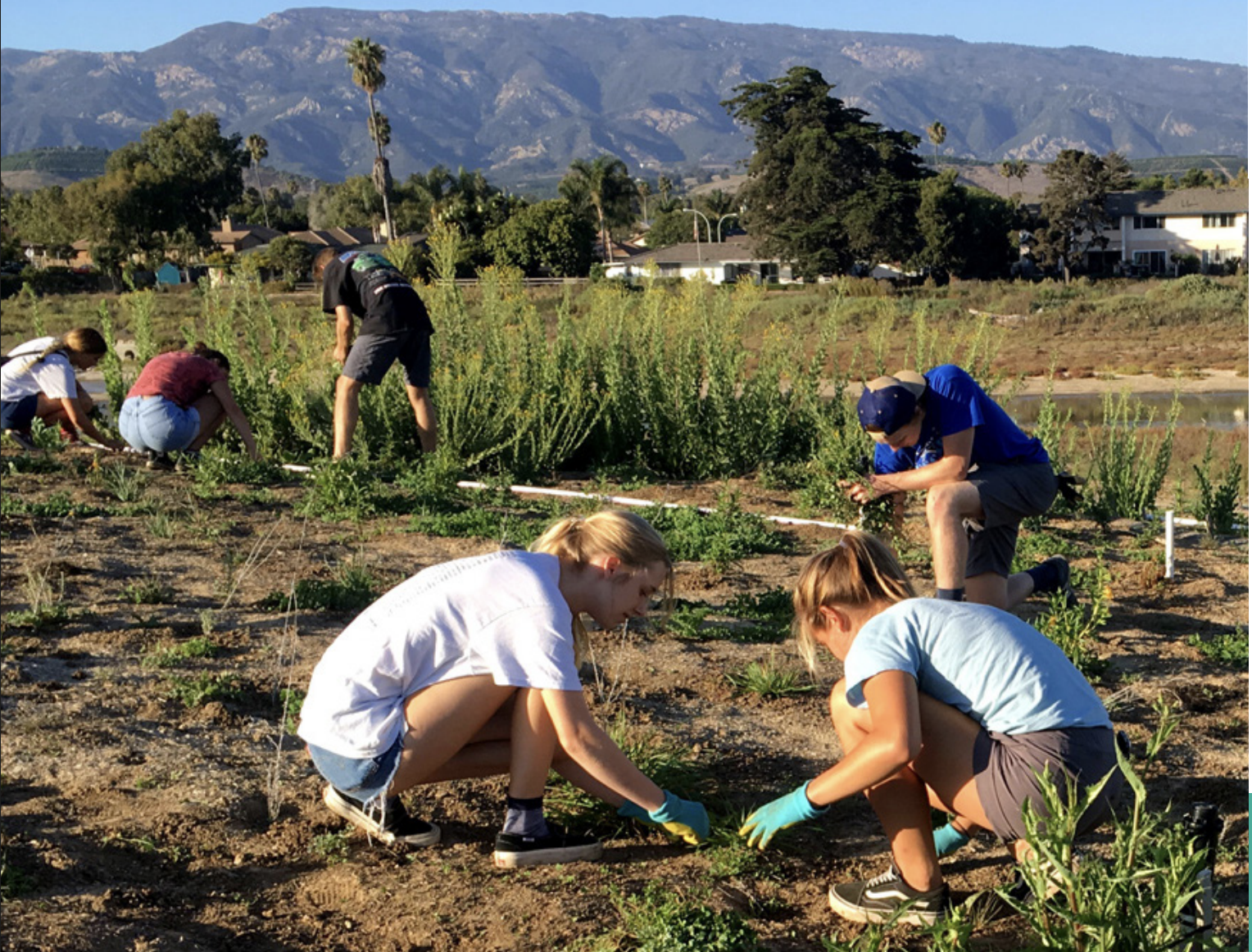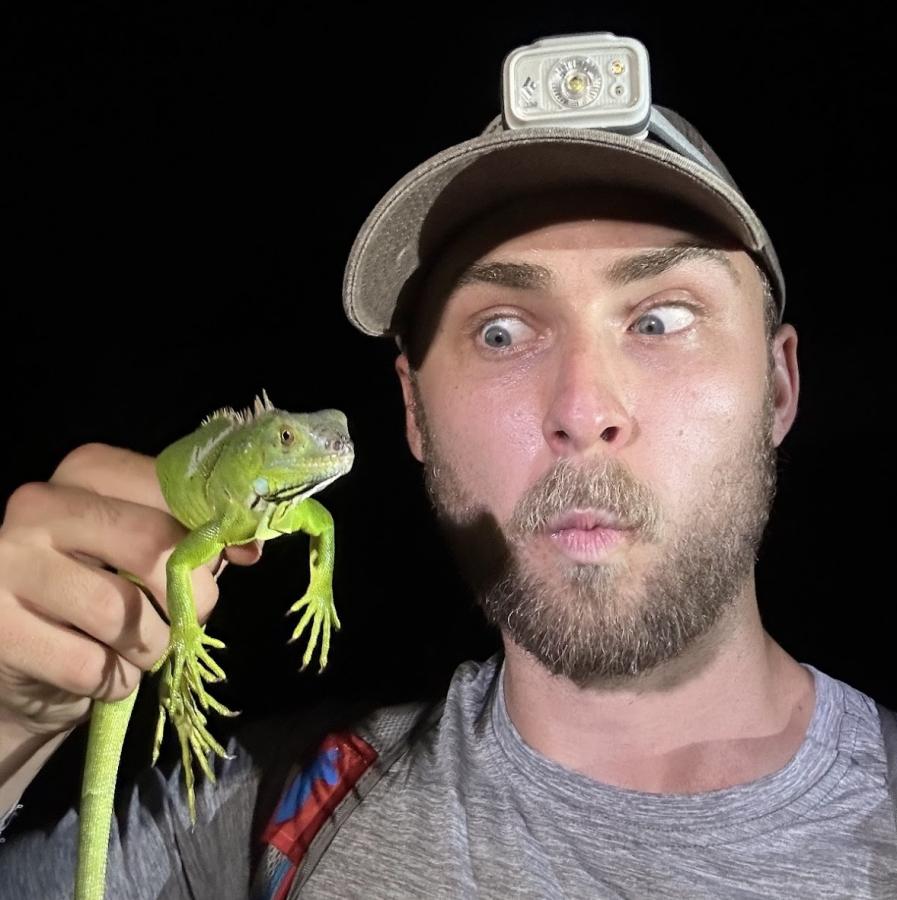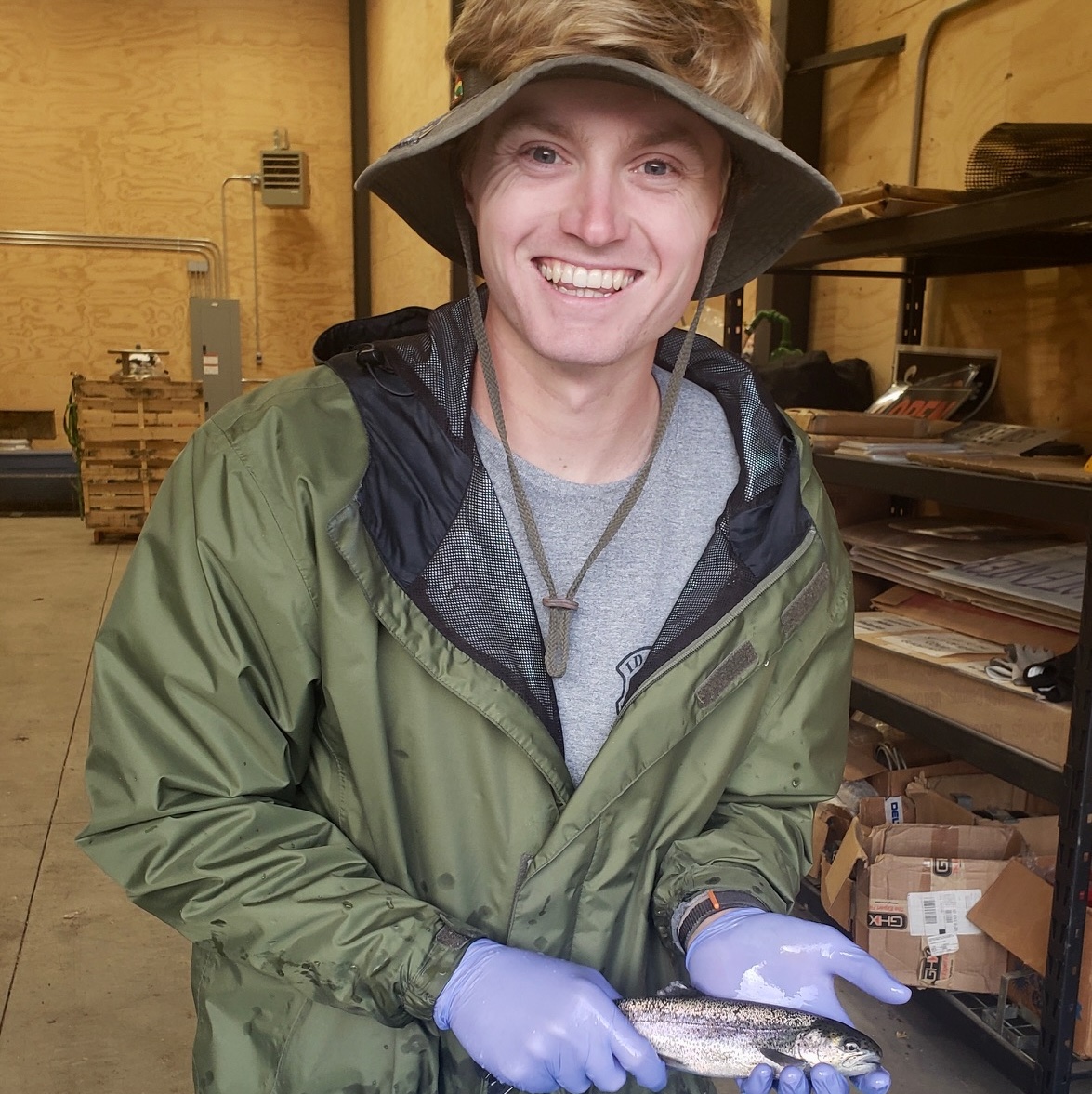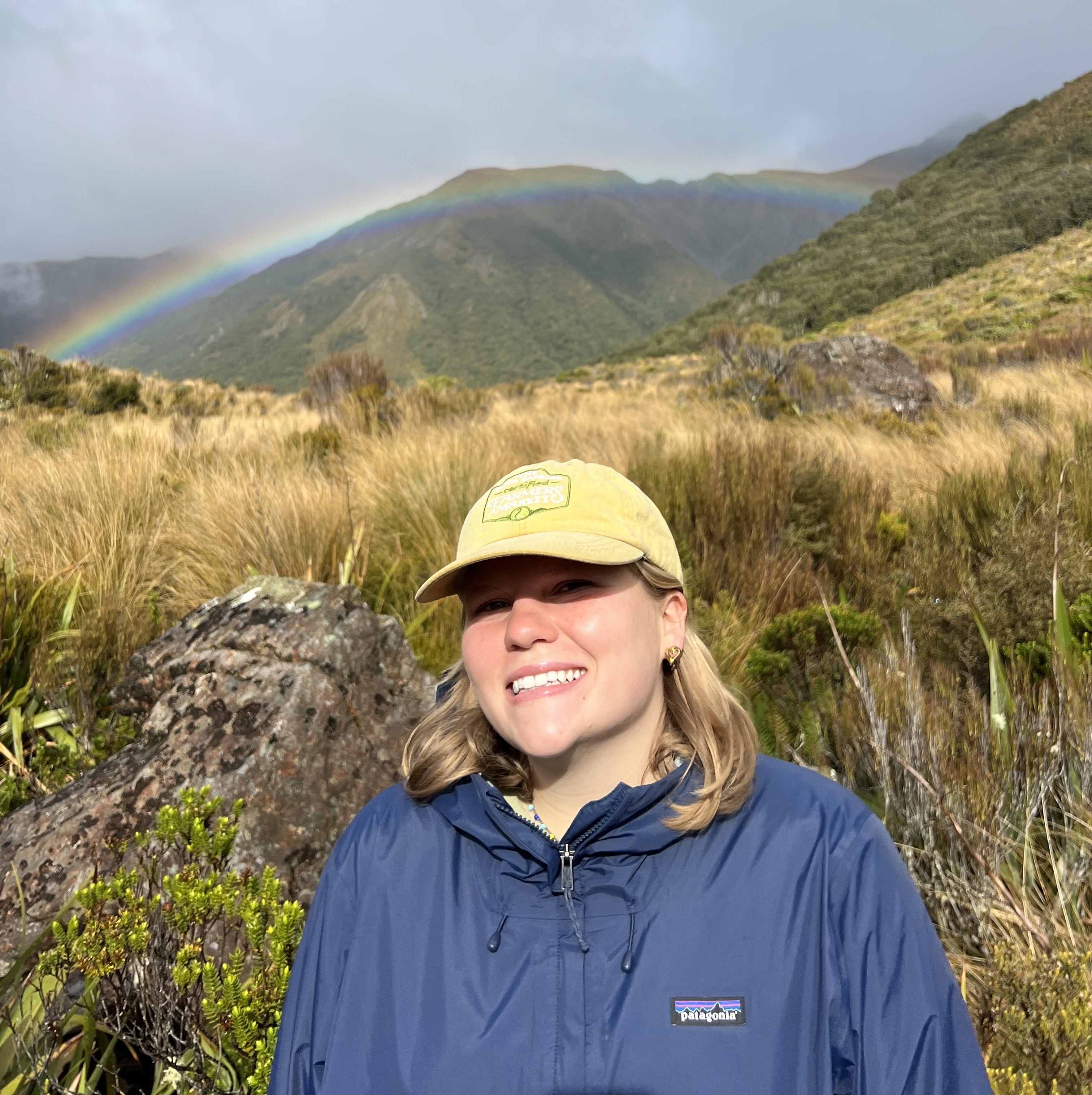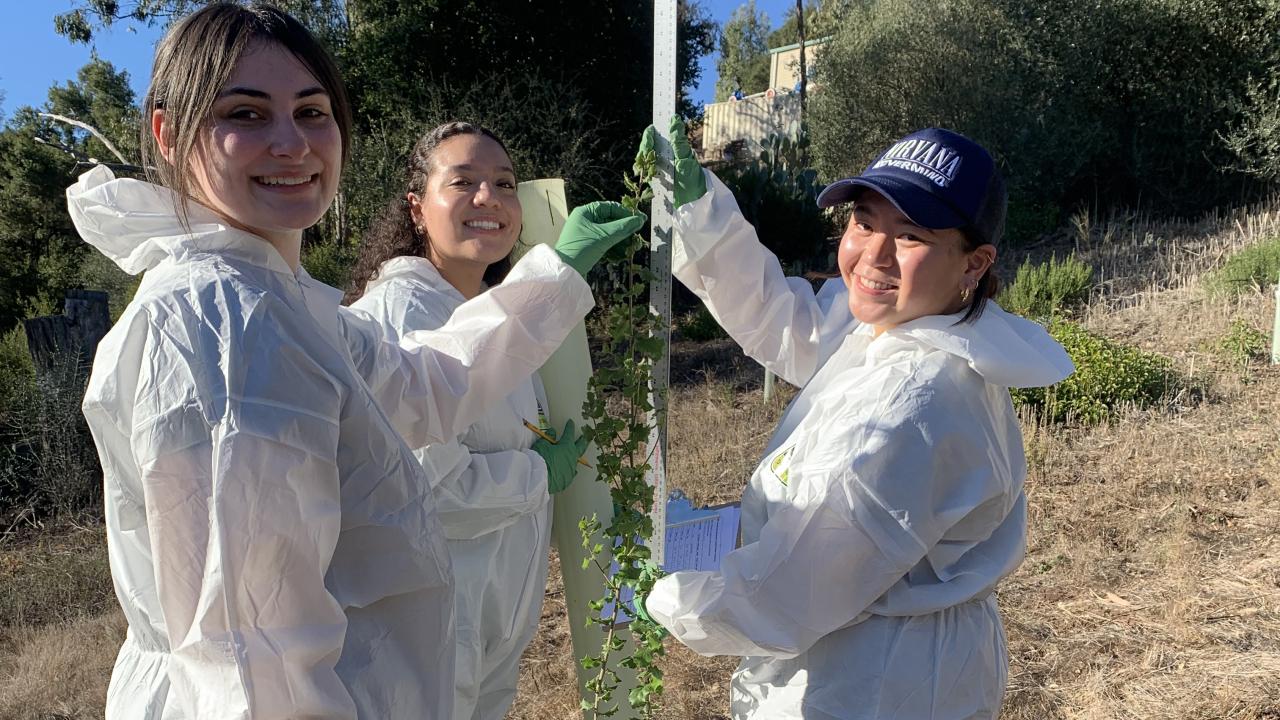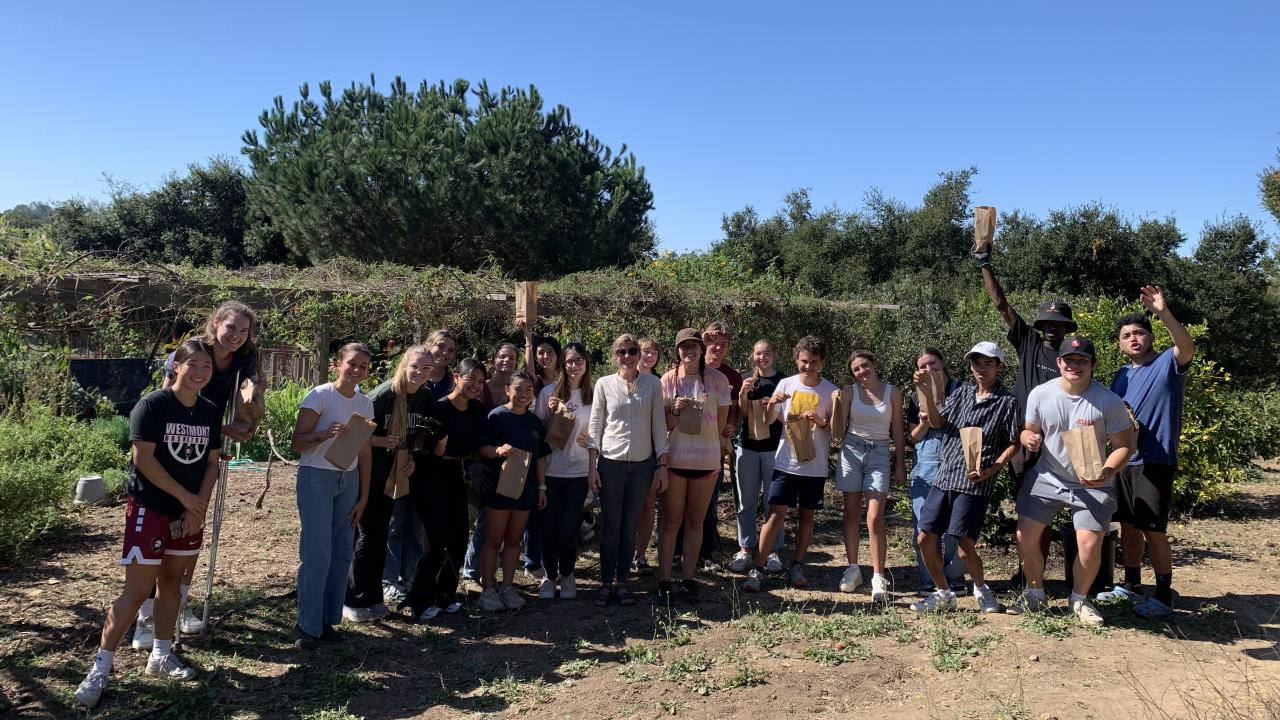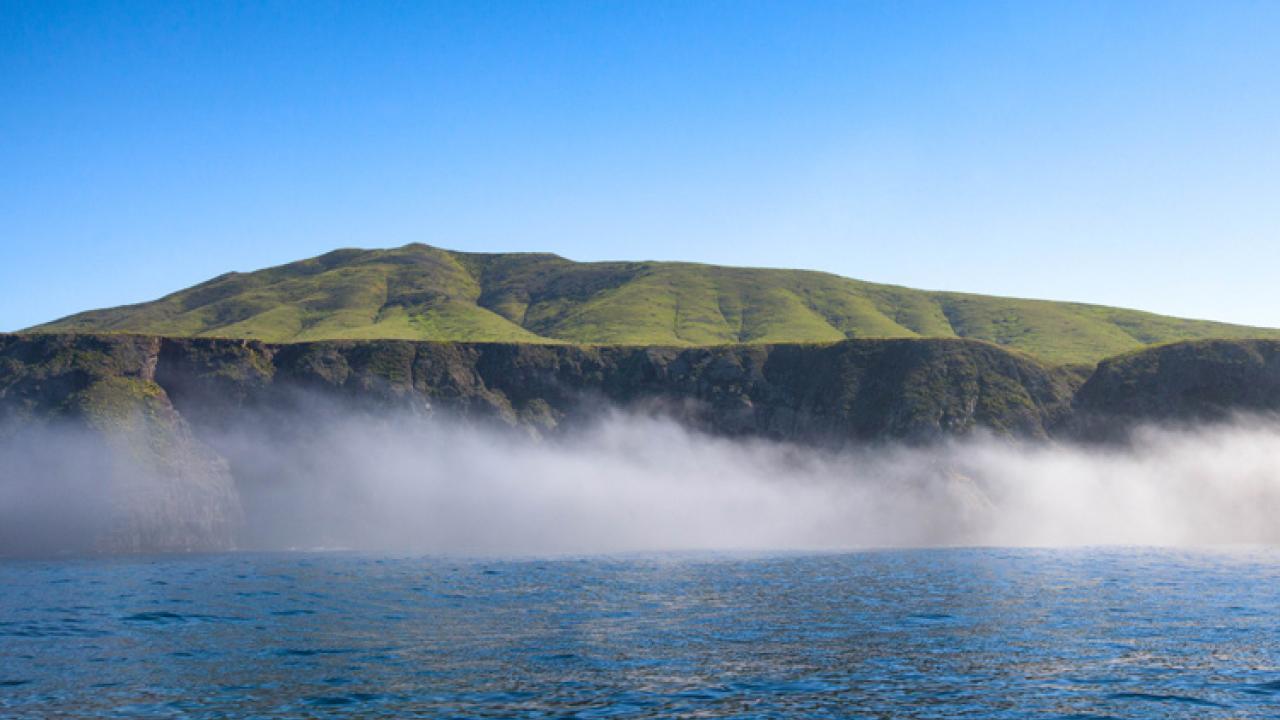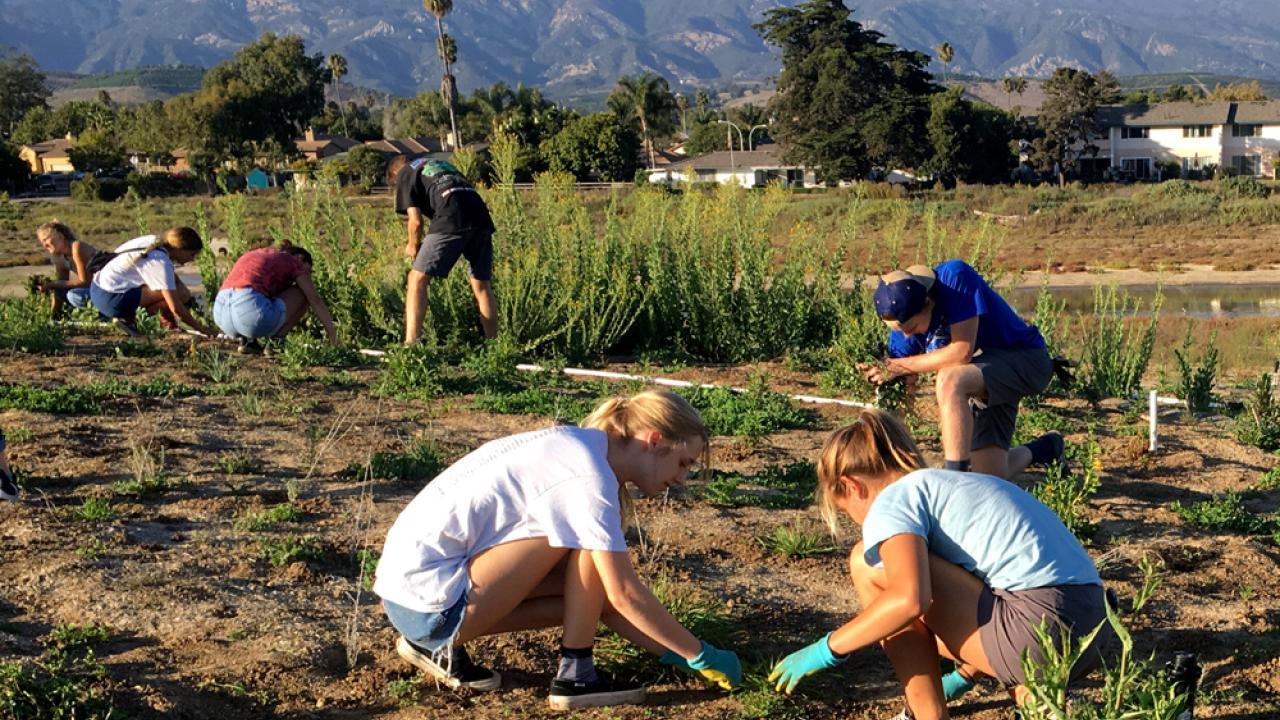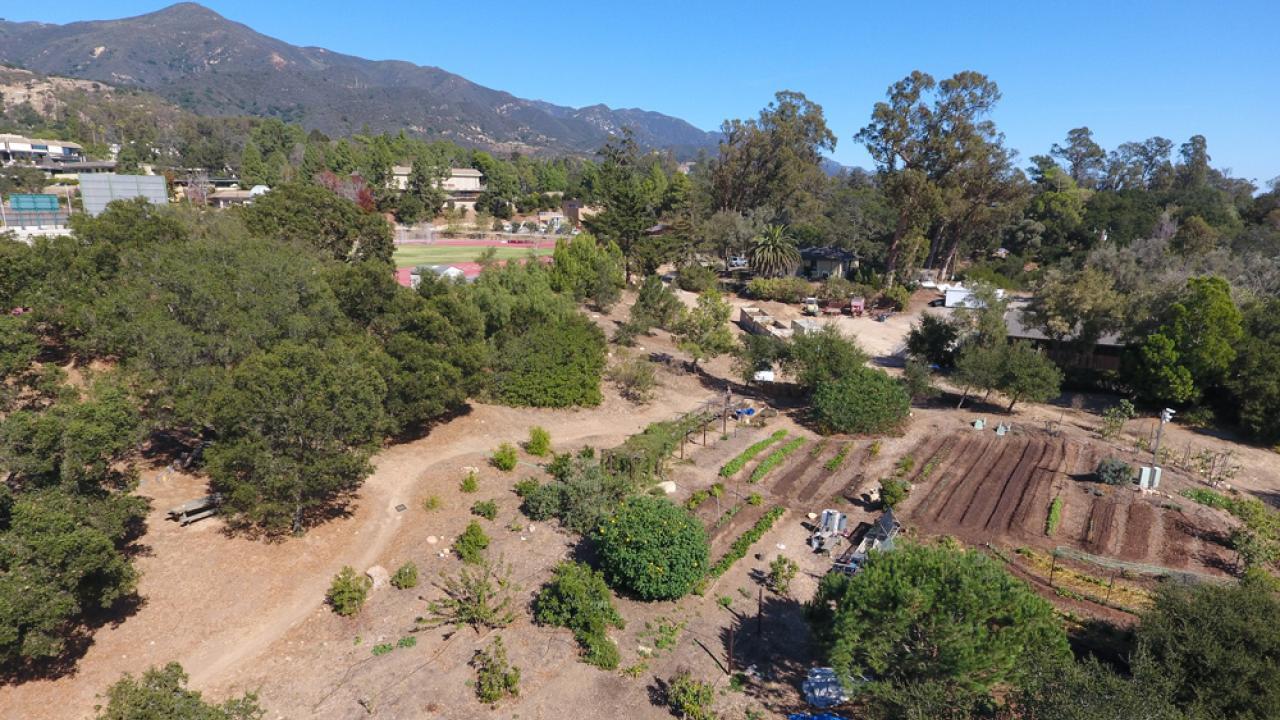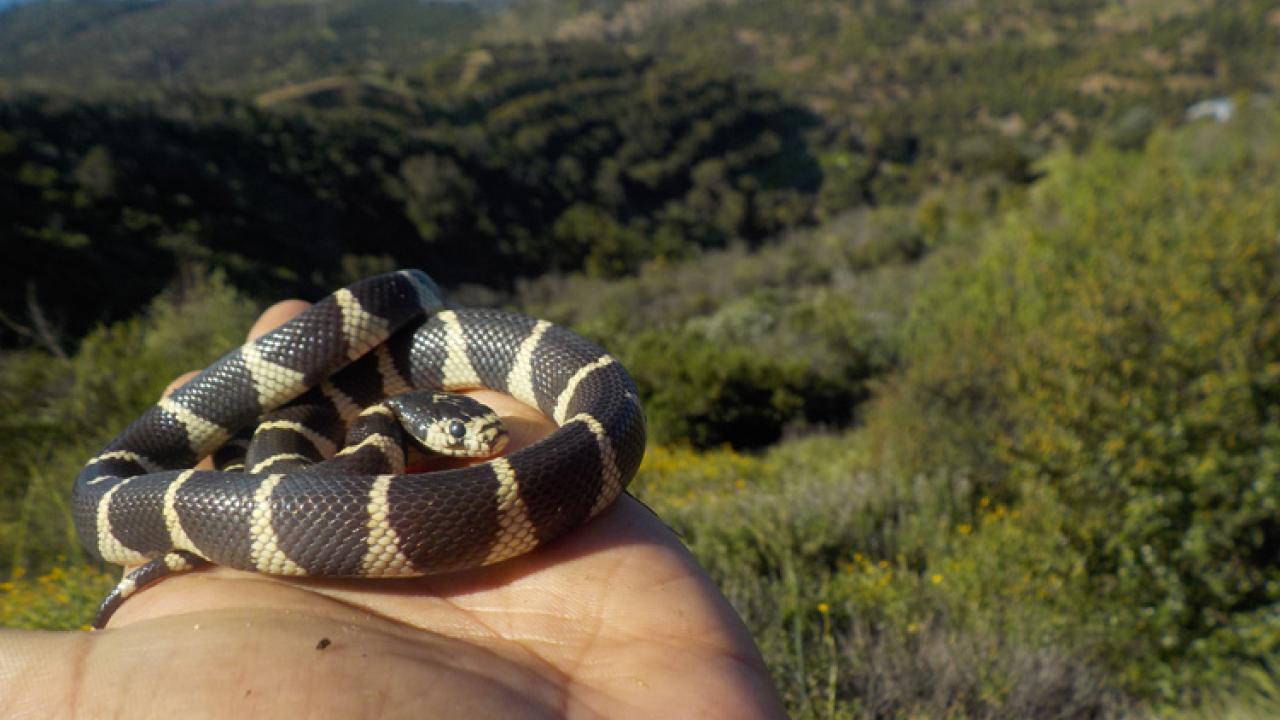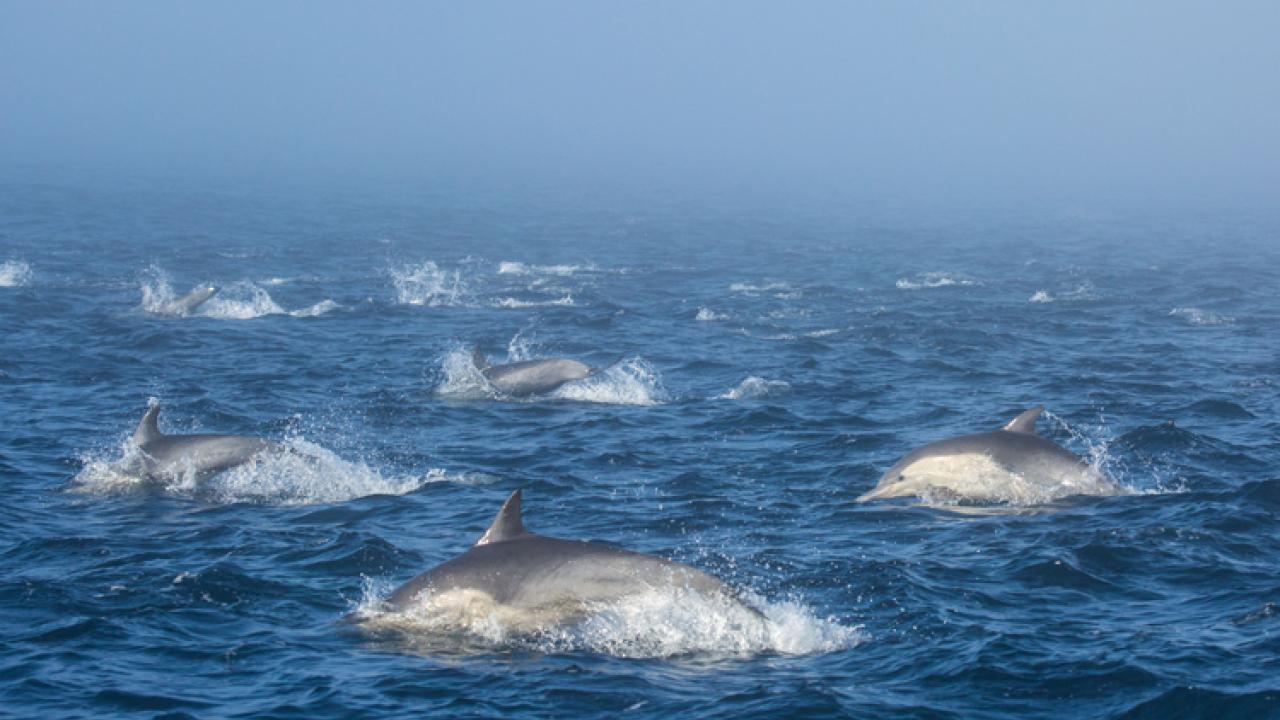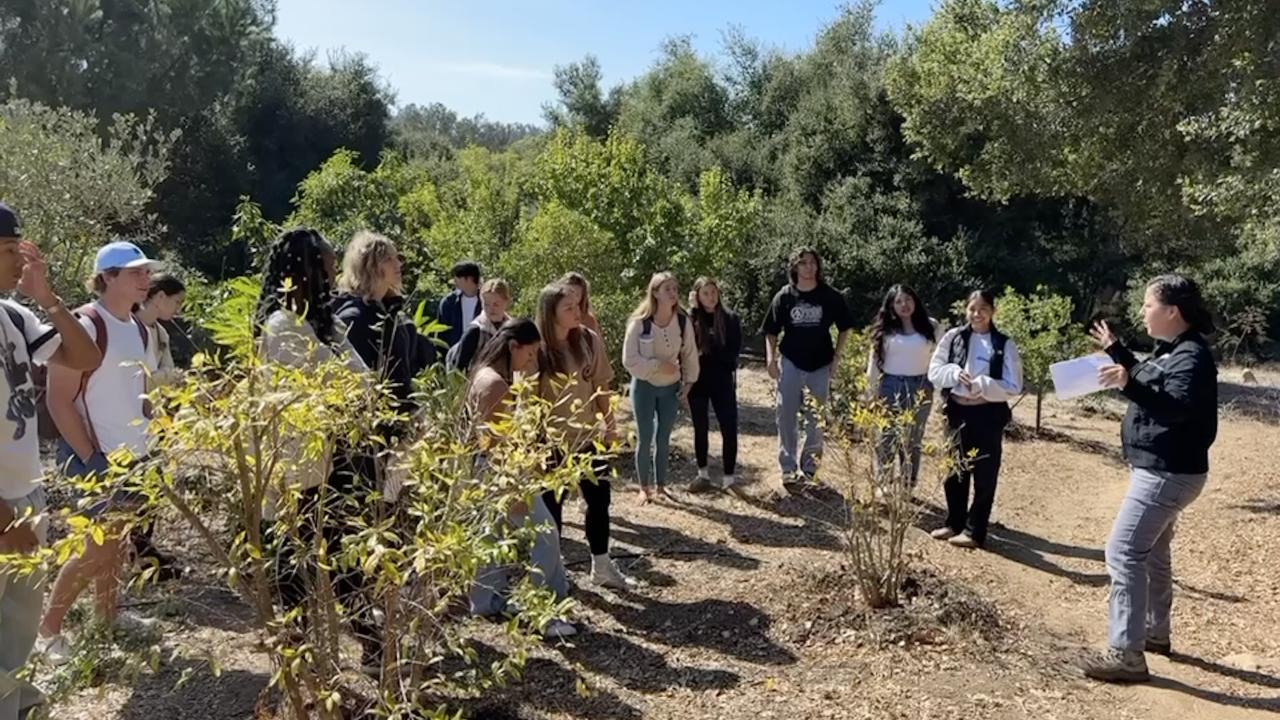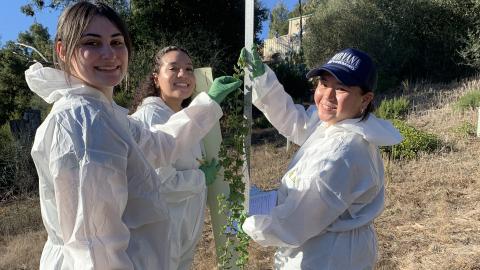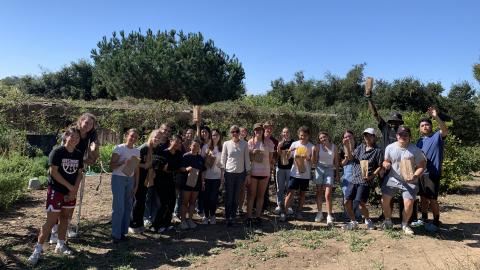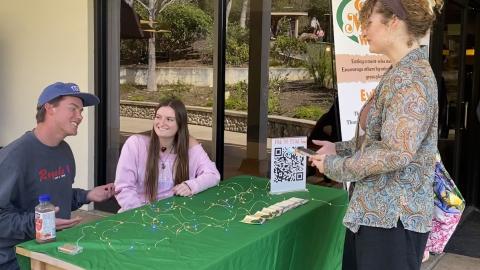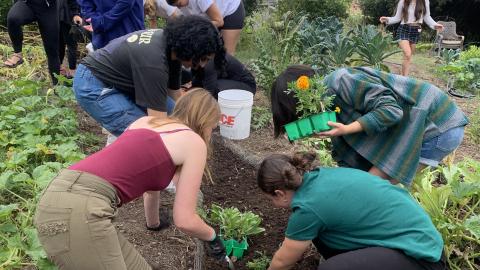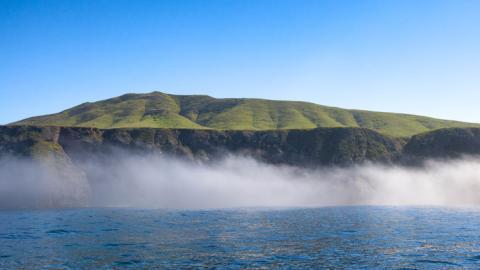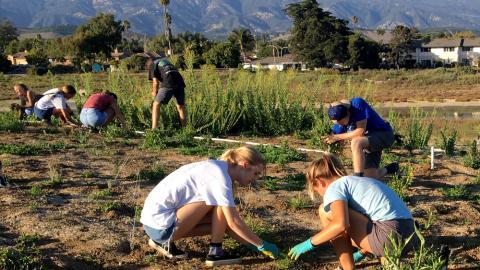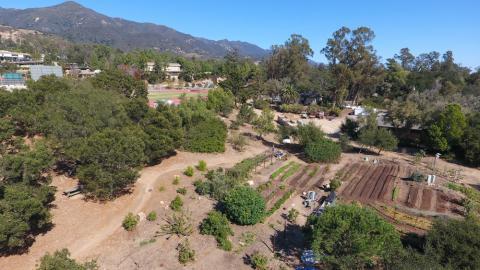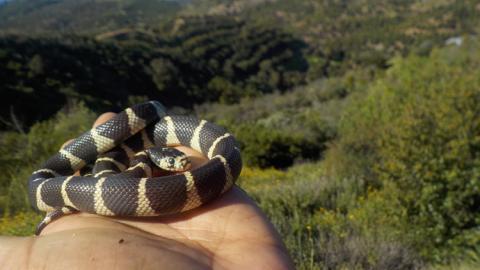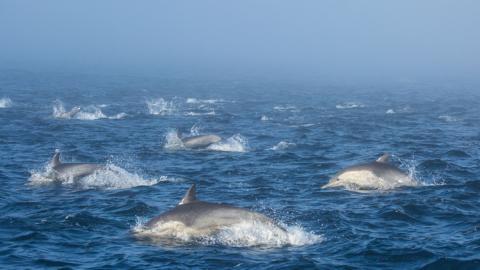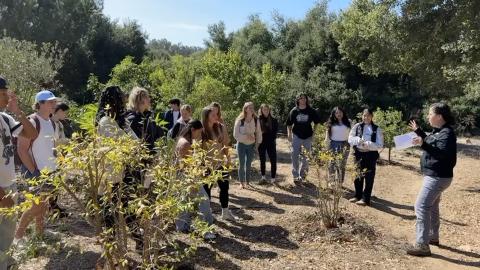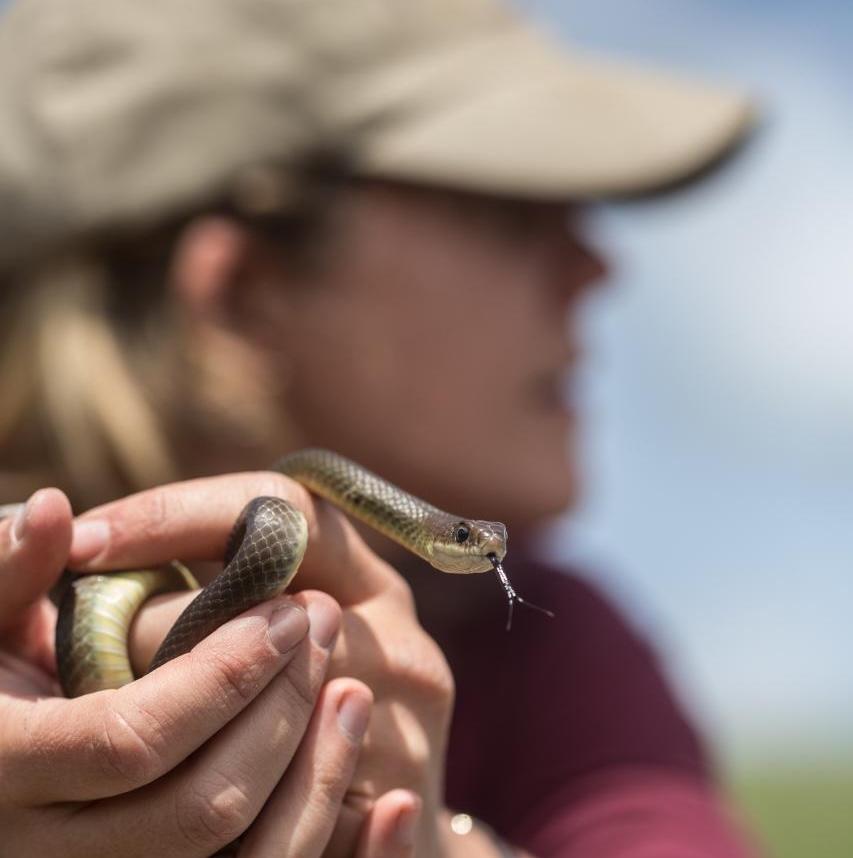Engage pressing environmental issues and practice stewardship of the Earth.
Now offered as a major in addition to the existing minor!
Widespread environmental problems rank among the most pressing global issues of our time, and their scientific, social and moral dimensions require a sophisticated, informed and compassionate response. The Environmental Studies major cultivates a deep understanding of human connections to the natural world so you can analyze and debate complex environmental problems and devise constructive, imaginative solutions.
You’ll discover how to practice stewardship of the earth in the context of Christian theology and social and environmental ethics. You'll also develop the knowledge and skills to engage contemporary environmental issues such as biodiversity loss, pollution, resource depletion, climate change, renewable energy, sustainable agriculture and sustainable development from local to global scales.
Environmental Studies Flyer
Selected Courses
- Introduction to Environmental Studies
- Environmental and Natural Resource Economics
- Restoration Ecology
- Animal Diversity
- Land into Landscape
- Environmental Politics
- Food Systems
Possible Internship Sites
- Apeel Sciences
- Channel Islands Restoration
- Deckers
- ECOFaith of Santa Barbara
- Gaviota Coast Conservancy
- Santa Barbara Botanic Gardens
- Santa Barbara County Board of Supervisors
- Santa Barbara Museum of Natural History
- Santa Barbara Wildlife Care Network
- Santa Barbara Zoo
- The Trust for Public Land
- Westmont Garden
- Wilderness Youth Project
- And many more!
Year 1
- ENV 001 Introduction to Environmental Studies (4)
- ENV 002 Environmental and Earth Science (4)
Year 2
- PHI 150 Environmental Ethics (4)
- ENV 101 Introduction to GIS (4)
Year 3
- Natural Science/Social Science/Humanities Elective (4)
- Natural Science/Social Science/Humanities Elective (4)
Year 4
- Natural Science/Social Science/Humanities Elective (4)
- ENV 195 Environmental Studies Capstone (1)
- Marine Biology
- Animal Diversity
- General Ecology
- Ornithology/Herpetology
- Plant Classification and Biodiversity
- Restoration Ecology
- Chemistry, Culture and the Environment
- Physics for Future Presidents
- Food Systems
- Environmental and Natural Resource Economics
- Perspectives on World History: Environment
- Environmental History of the Holocaust
- California Experience
- International Development
- Environmental Politics
- Environmental Sociology
- Land into Landscape: The Anthroposcenic Imagination
- Composition: Environment
- Studies in Literature: Environment
- Topics in Writing: Nature Writing
- Persuasion and Propaganda
- Argumentation and Advocacy
- Pentateuch: The Book of Deuteronomy
- Prophetic Literature of the Old Testament: Isaiah
- The Apocalypse
- Gender in Theological Perspective
- Screen Printing
- Writers in Conversation: Dystopian Fiction
- Modern Grammar and Advanced Composition
- Trail Hiking and Running
- Allison Lab
- Sparkman Lab
- The Sparkman Lab explores the ecology, evolution, and conservation of snakes, lizards and birds across California.
- Contakes Lab
- Schultheis Lab
- The Drake Schultheis Lab investigates plant adaptations and responses to drought, plant-fungal interactions, and the ecology of fire. Research focuses on fuels management, as well as chaparral recovery and restoration following wildfire across California.
A strong education in environmental studies will prepare you in innumerable ways for careers in governmental, academic, for-profit and/or non-profit institutions. Potential career paths include environmental law, green business, science journalism, wilderness therapy, outdoor education, natural resource management, restoration ecology, and sustainable agriculture.
Curious about where a major in Environmental Studies can take you?
Explore these exciting and impactful career opportunities:
- Environmental consulting
- Environmental policy and law (J.D., L.L.M.)
- Sustainable development
- Conservation and natural resource management
- Urban and regional planning
- Climate science and advocacy
- Renewable energy and energy policy
- Environmental education (K–12, outdoor, museum, non-profit)
- Ecotourism and sustainable business
- Public health and environmental justice
- Nonprofit and NGO leadership
- Government and regulatory agencies (EPA, NOAA, local/state environmental offices)
- Environmental journalism and communication
- Waste management and pollution control
- Agriculture and food systems sustainability
- Wildlife and habitat conservation
- Corporate sustainability and ESG (Environmental, Social, Governance) roles
- Research and academia
- Environmental data science and GIS analysis
Where are our Environmental Studies Alumni now?
ALEXANDER RURIK
Since graduating in May 2023, I've been in my second year of my PhD in the Walker Lab of Microbiome Ecology where we use a variety of molecular and microbiological techniques to study the evolution and ecology of microorganisms. My dissertation research is focused on understanding the diversity, structure, and dynamics of reptile and amphibian gut microbiomes. I also get to help out with other lab projects including our study on snake fungal disease and investigating the phylogenetic relationships of fungi in the genus Basidiobolus. I believe the complex environmental challenges we're facing today require an interdisciplinary approach to looking for solutions. I had amazing experiences in my biology and chemistry courses, but I really appreciated my environmental studies degree because it framed the scientific detail with relevant context and breadth for better understanding the dynamic interactions between humans, human society, and our relationship to the natural world. The classes were phenomenal, no doubt, but what I enjoyed most were the people––all of the students and professors that were involved were there because they wanted to be and believed in the importance of the program and the questions that were being asked.
PHILIP SMYTHE
Since graduating in 2023 I have worked several seasonal positions and am now pursuing masters advisors for continuing education. My two most recent positions are working as a scientific diver for a freshwater mussel consulting company and working as a fish hatchery technician with Idaho Fish and Game where I currently work. Something I appreciated a lot from my environmental studies major was how interdepartmental it was. Beyond just liberal arts I was able to experience multiple disciplines and specifically how they all engaged with the same environmental issues and relationships.
GRACE GANTT
I graduated in May of 2025, and I am beginning a Masters in Theology and Ecology at Princeton Theological Seminary. Westmont ENV brought me a community of passionate people at Westmont who think and care about the environment. Westmont ENV also helped me discover what specific areas of environmental work I’m more or less interested in. Being a part of sustainable development at Westmont was quite meaningful to me.
BROOKE MURPHY
I graduated in 2023, with a double major in Environmental Studies and Religious Studies. This fall, I’ll be heading to Cal Poly SLO to start the Environmental Science and Management masters program. The Westmont ENV program led me to explore a discipline that I hadn’t had the opportunity to explore before. My education opened my eyes to the interconnectedness of ES with other disciplines, the humanities in particular. I’m grateful for the staff and faculty who advocated for me along the way. I most value the time spent doing research with Dr. Marianne Robins. For my senior capstone, Dr. Marianne Robins helped me with an Environmental History project, which culminated in my presentation at the Westmont Research Symposium. Without the time spent doing research with her, I don’t know if I would have pursued further research in graduate studies.
Environmental Studies Program Directors
Faculty Highlights


Chemistry









News
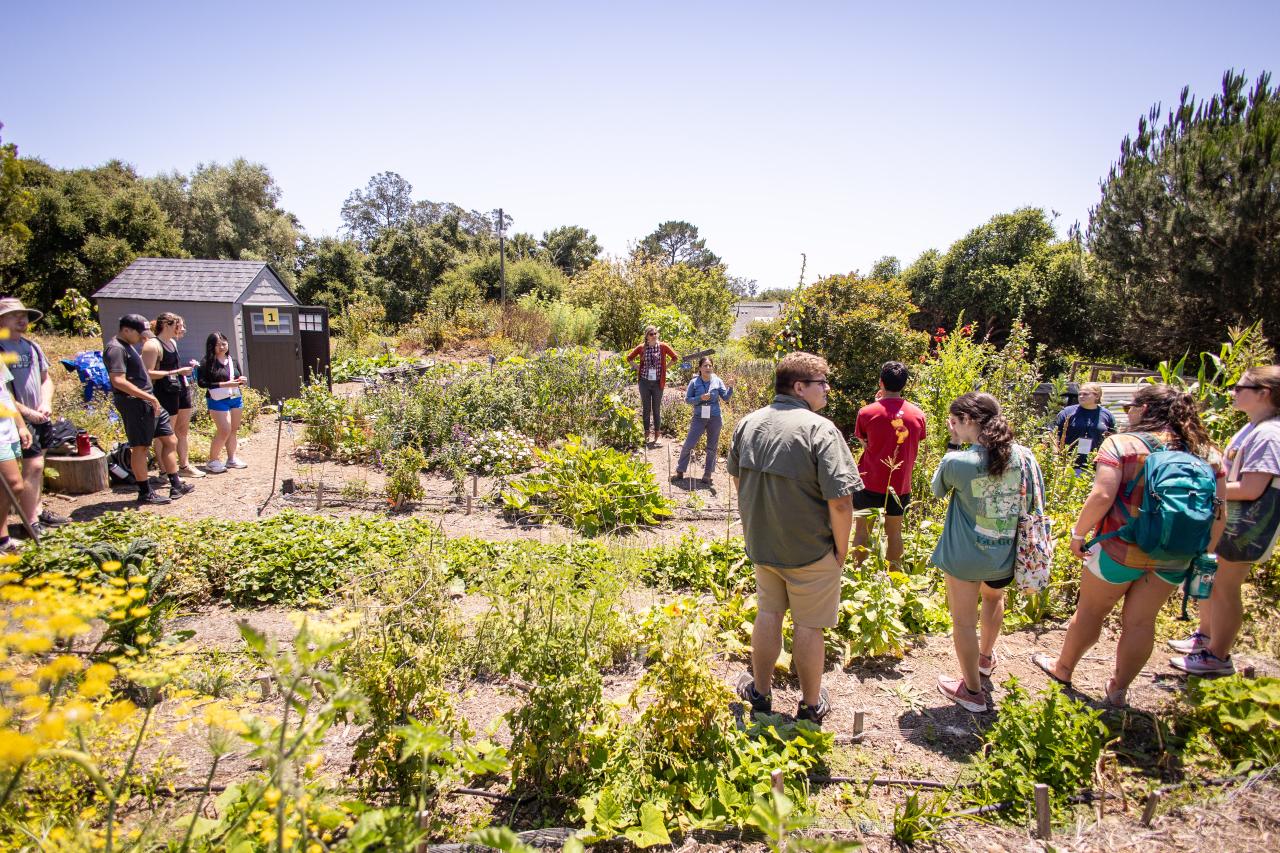
Offering Grants for Climate Projects
In the last two summers, Westmont has hosted more than 100 evangelical students, professors and nationally recognized experts for conferences about Christian climate advocacy. The Faith.Climate.Action. Workshop, funded by the Arthur Vining Davis Foundations, now provides nearly $40,000 in grants to support sustainability initiatives for eight members of the Council for Christian Colleges and Universities (CCCU).
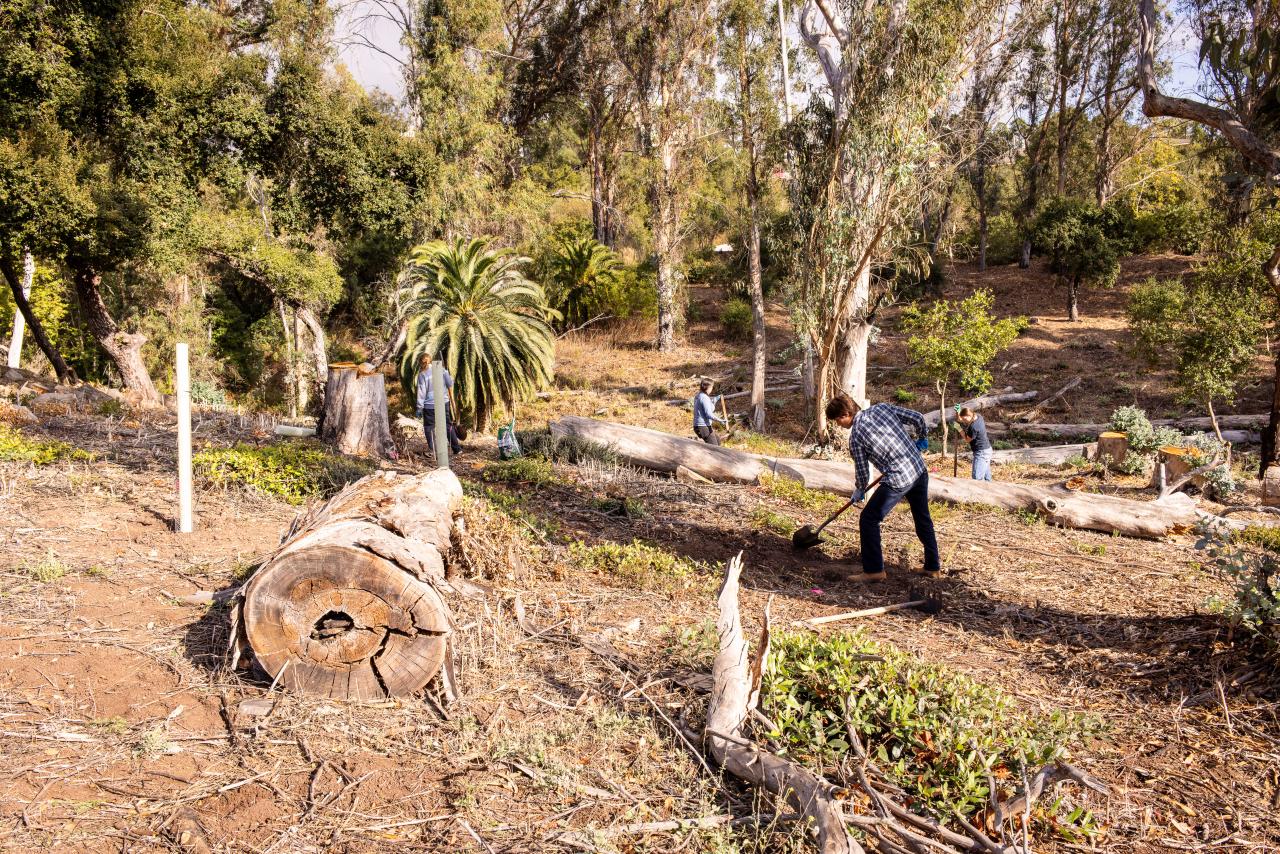
Growing Oaks Offer Wildfire Resilience
A Westmont biology class is celebrating the growing success of an oak woodland restoration project in the barranca along the westside of Westmont’s campus. Nearly all of the 60 coast live oaks that were planted along the dry Westmont Creek in November 2023 are surviving and many have grown more than three feet tall.
